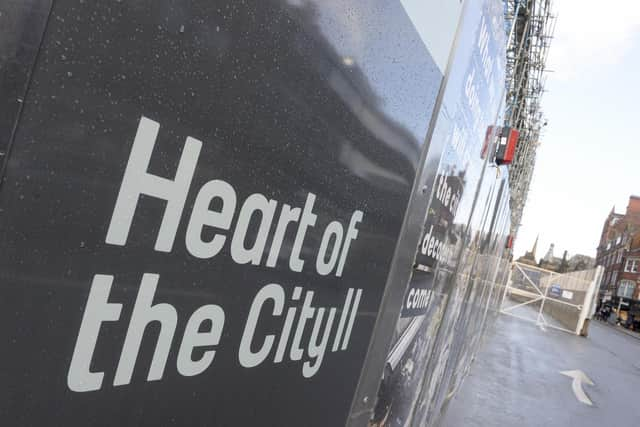The five basic principles that should drive reopening the economy - Beckie Hart
This is a health issue in its own right – the mental and physical toll of unemployment is well known. Businesses are rightly impatient to get back to work. They want to protect jobs, their employees and the wider economy.
But impatience must not be confused with recklessness. Restarting must be done with utmost care. Move too soon and the UK will be back to square one with renewed controls.
Advertisement
Hide AdAdvertisement
Hide AdBut while it may not yet be time to end lockdown, it is time for a restart plan. Time for government to work with business like never before. Business and the country must be prepared for the complexity of revival. The Government is starting to make strides on this; and it should accelerate.


Innovative British firms are already showing how to move forward. Every day, more and more British firms are re-opening, in line with health guidelines. Some have faced unfair criticism.
From Severfield to Distinction Doors, they’re working closely with staff to agree health measures; with customers to bring back demand; and with suppliers to get goods and services moving again. This protects jobs and provides lessons for the future.
It’s time to start learning and sharing those lessons – from the UK and abroad. From CBI conversations with unions, health workers, transport leaders and international peers, five principles should guide a successful economic restart.
Advertisement
Hide AdAdvertisement
Hide AdFirstly, don’t set up a false fight between health and wealth. They stand together. Without health, there is no restart. This is both a moral and a practical position.


The devastating toll must be contained. Work will only begin again if vital public confidence is present. Unless they feel safe, workers won’t return, customers will stay away, and the restart will falter. Worse still, if health measures aren’t prioritised, infections will rise. A sustainable restart based on clear scientific evidence, availability of PPE where needed and a clear testing regime is the best hope of avoiding a further disastrous lockdown.
Second, build confidence together. Government, health experts, businesses, unions and civic society must develop the plan together and speak as one, supporting firms who are protecting employees and the economy. Unity brings clarity, transparency and resilience.
Wherever possible, all regions and nations of the UK should work in lockstep, with new forums established if needed. We are already starting to see this happen in Yorkshire and the Humber with regional economic recovery groups convening and I for one am proud to be part of those.
Advertisement
Hide AdAdvertisement
Hide AdThirdly, phase opening based on capacity to cope. Restart will come at different times for different sectors. Offices, farms, factories and shop floors will all face different challenges.
Hospitality sees little hope of activity until autumn. Those who can work from home may need to continue to do so, so others can travel.
Fourth, flexibility within a framework. Government can’t control everything. And a ‘one- size fits all’ approach won’t work. Other countries are lifting restrictions before us, so we can watch and learn from them.
Perhaps most important of all – build back better. Restart is a long-term project and must have a forward-looking vision behind it. However difficult, this crisis has afforded us the chance to be radical. Tackling inequality, the quality of work, investing in sustainability and recalibrating our education and skills system to meet the needs of the future must all be at the heart of the plan.